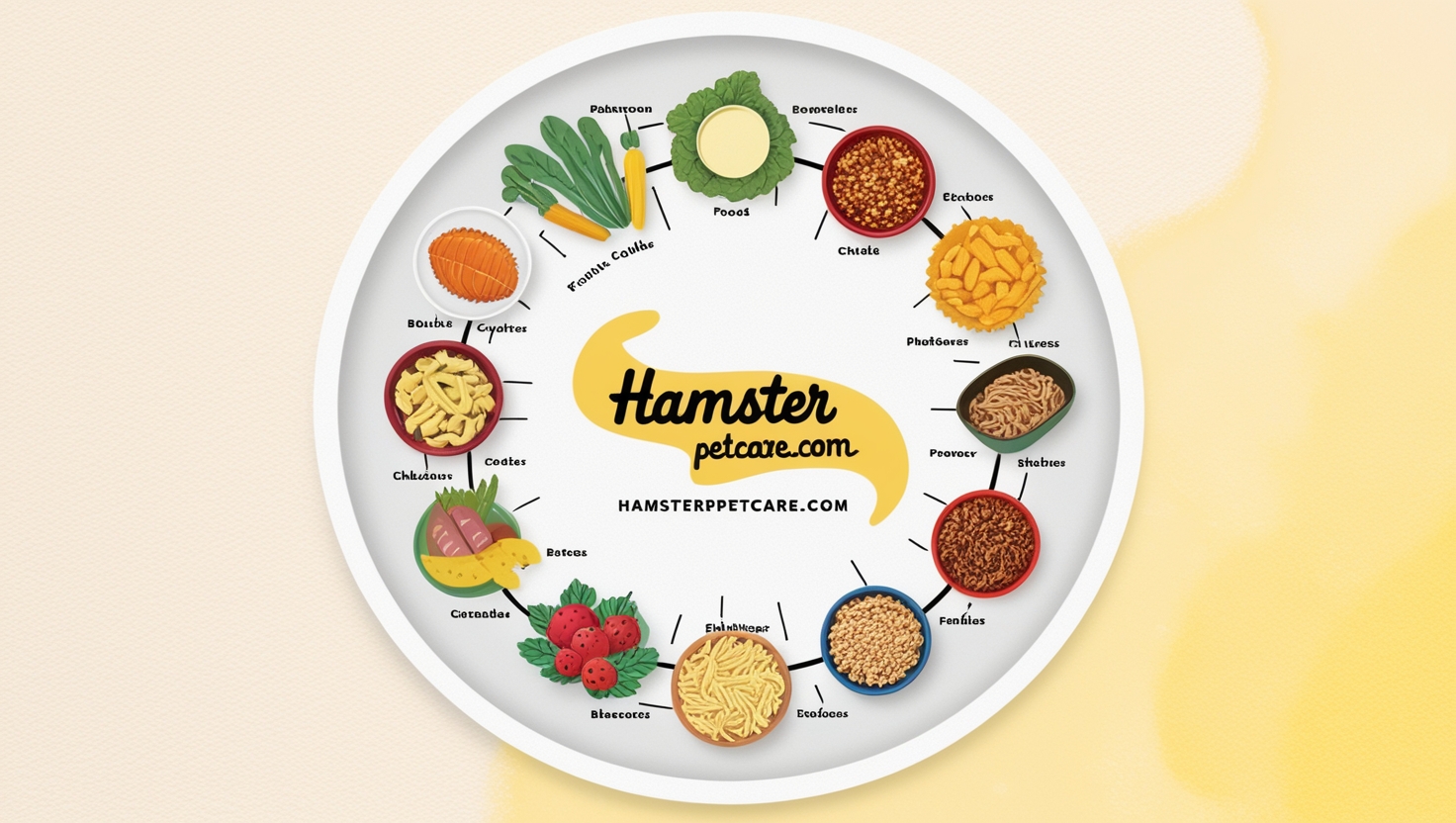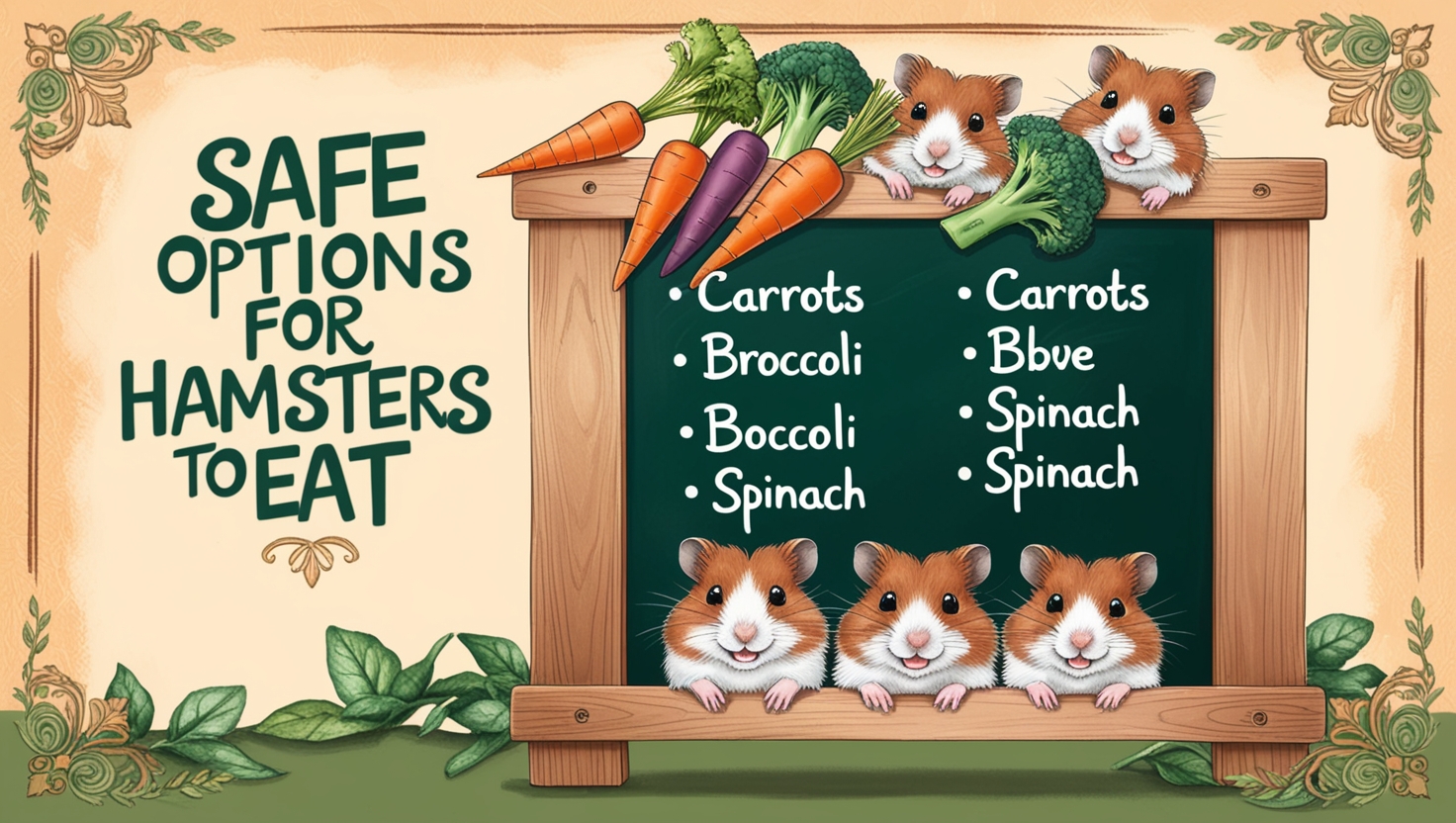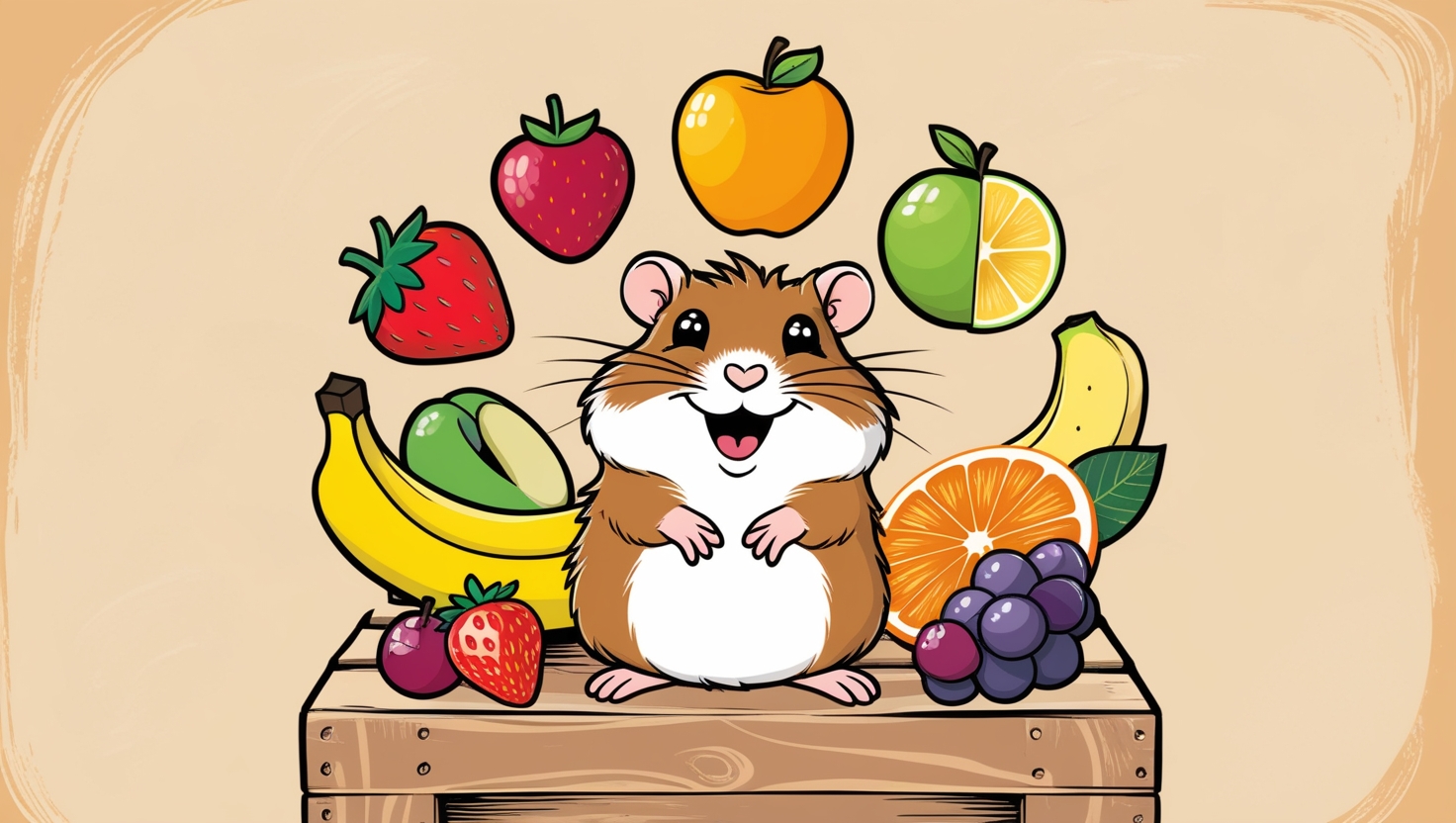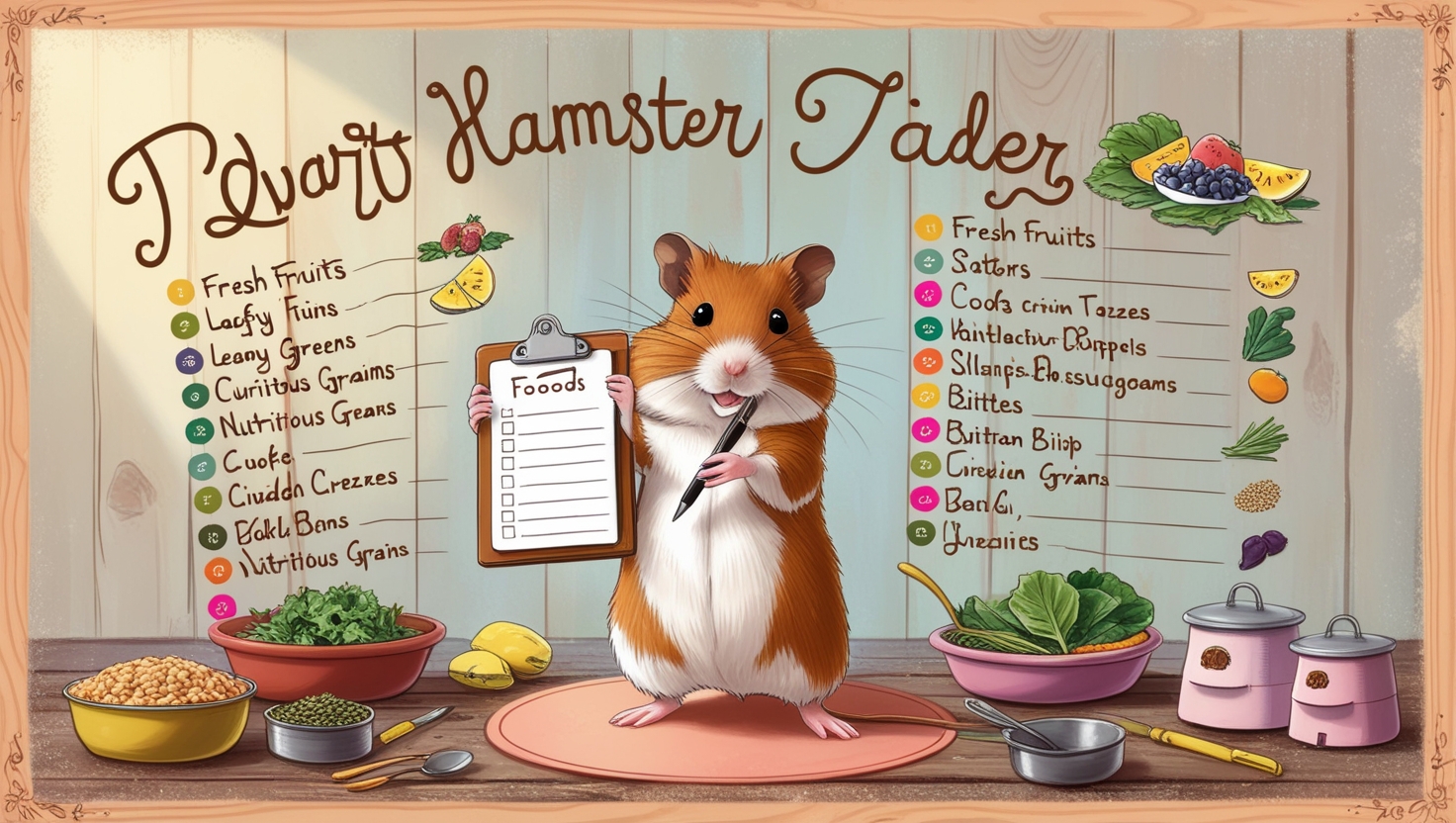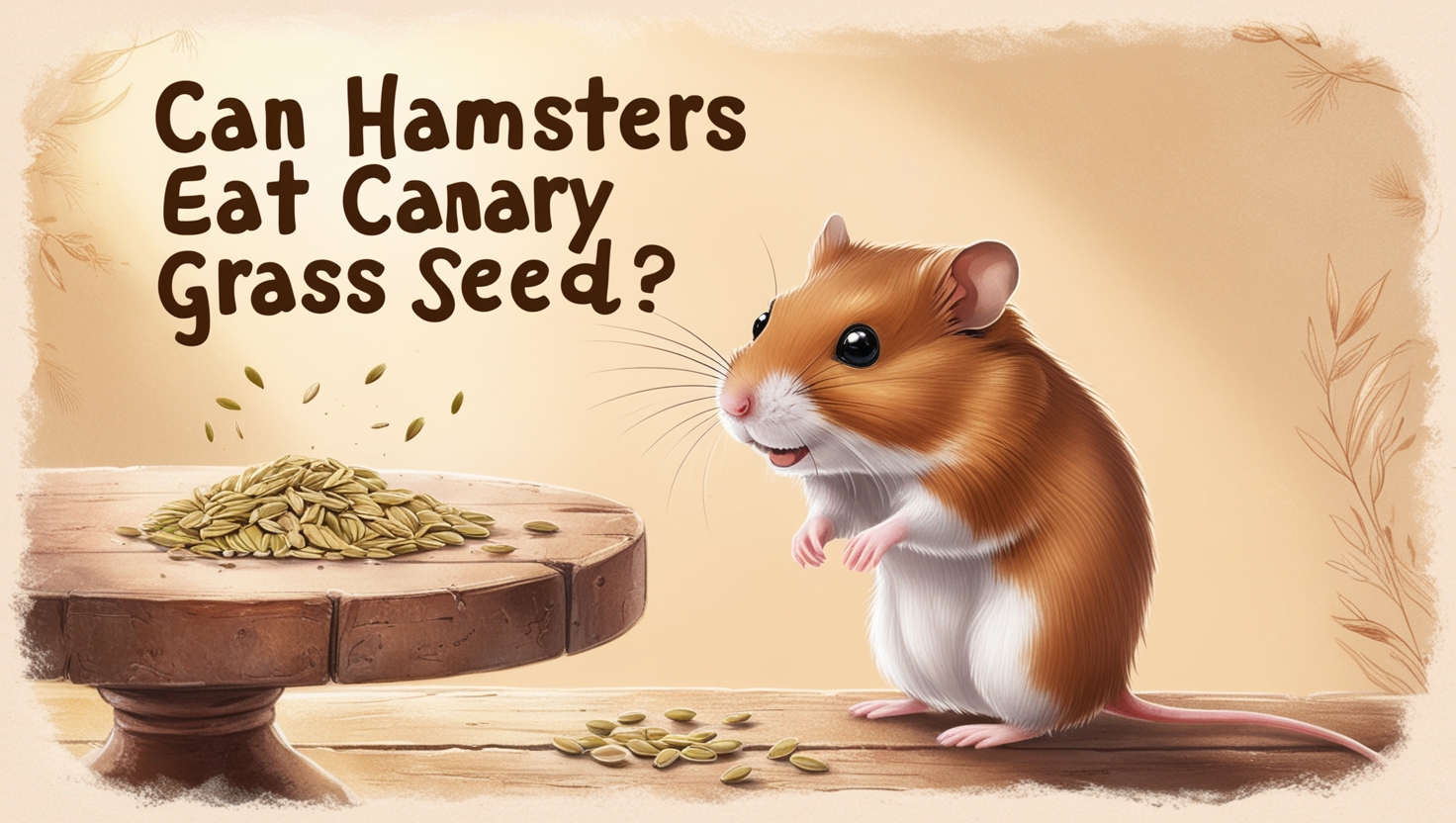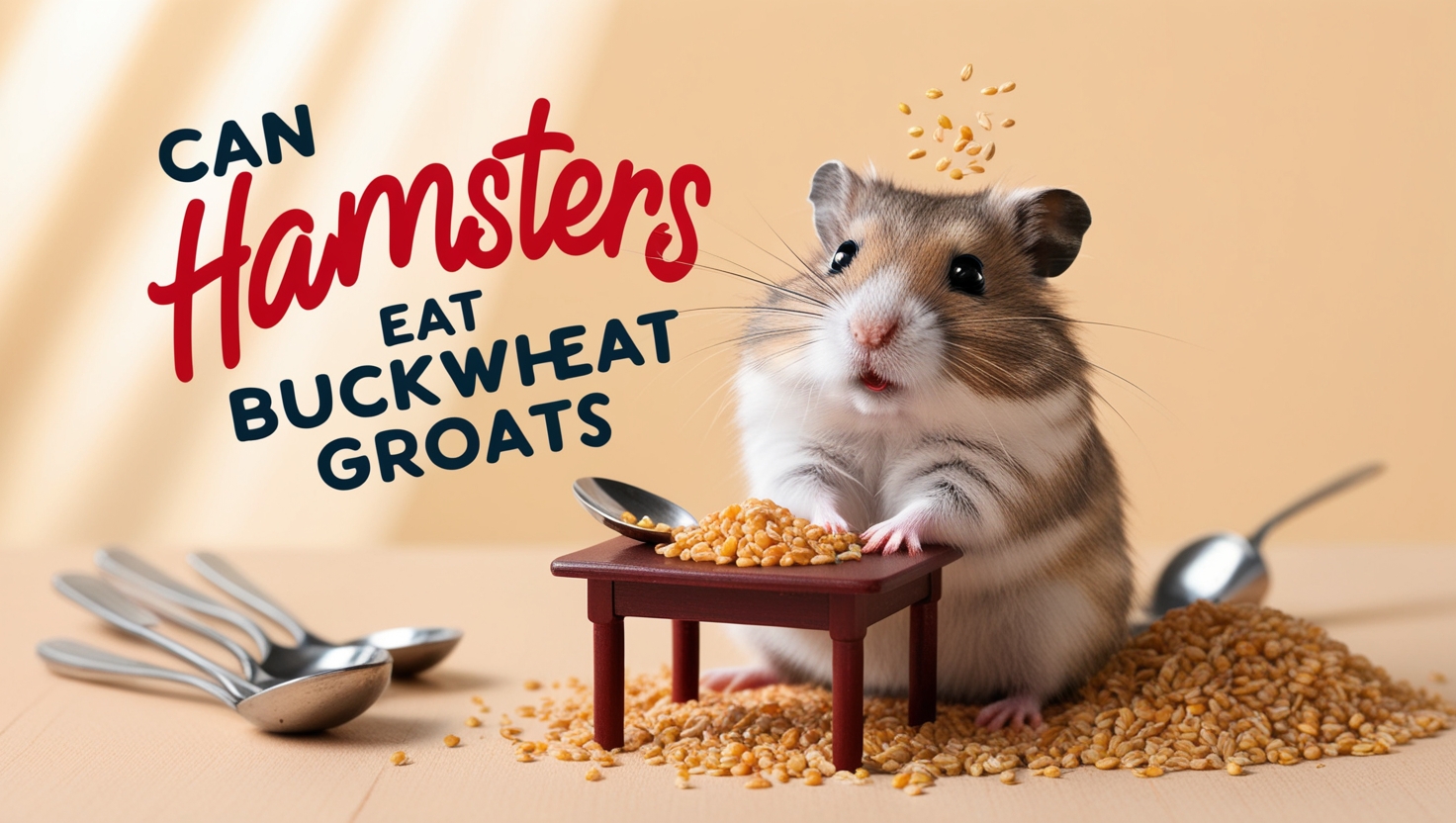Hamsters are adorable, pint-sized creatures that make fantastic pets. As a responsible hamster owner, you might wonder about the dietary options for your furry friend. One common question that arises is, “Can hamsters eat blackberries?” In this comprehensive guide, we will explore the suitability of blackberries as a part of your hamster’s diet and provide you with valuable insights into keeping your pet healthy and happy.
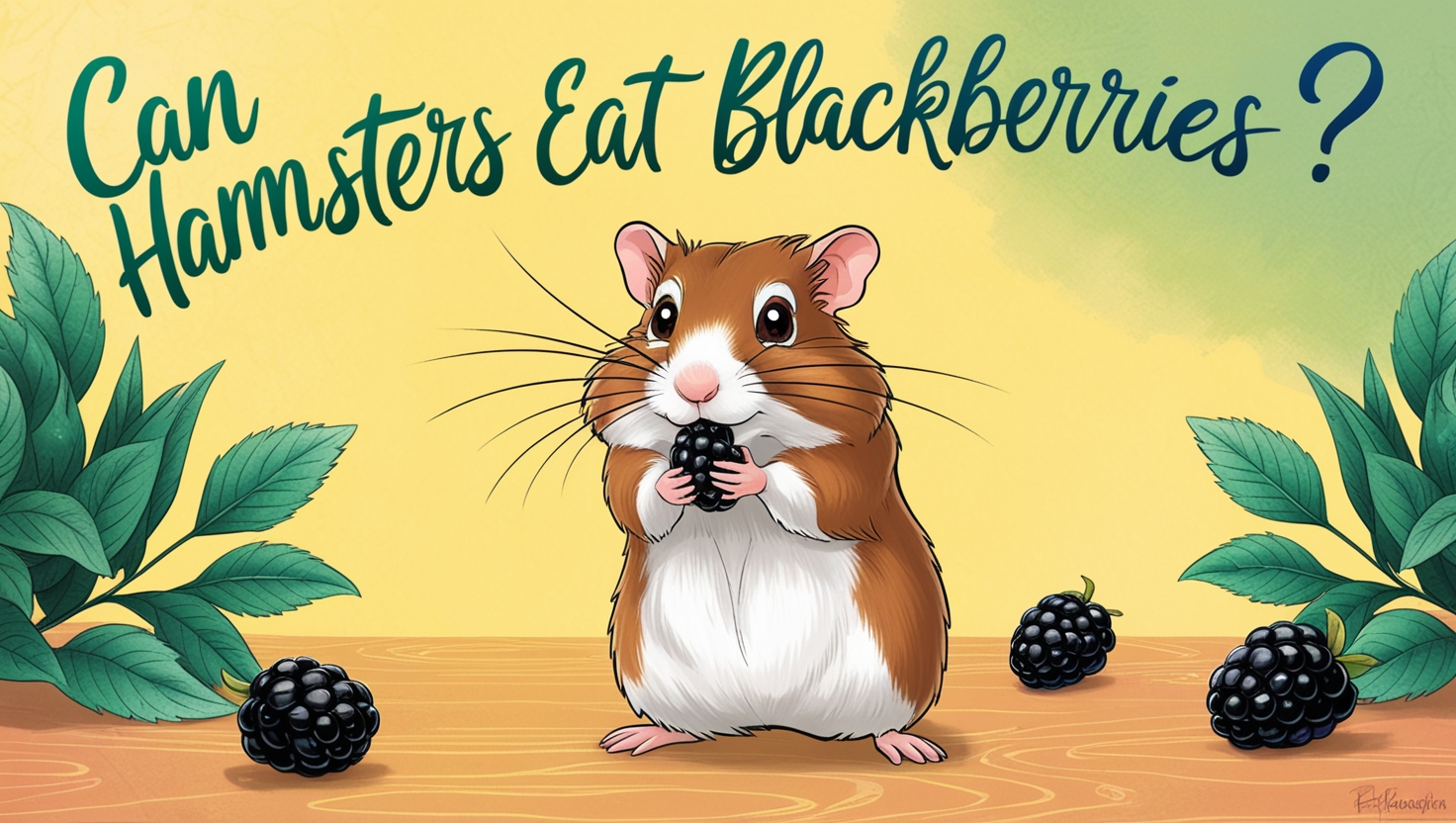
Can Hamsters Eat Blackberries?
Hamsters are omnivorous creatures, which means they can eat a variety of foods, including fruits. Blackberries, known for their sweet and juicy flavor, may seem like an enticing treat for your hamster. However, before you rush to share this snack with your furry companion, there are essential factors to consider.
Are Blackberries Safe for Hamsters?
Yes, blackberries are safe for hamsters when offered in moderation. These fruits are packed with essential vitamins and minerals, making them a potentially nutritious addition to your hamster’s diet. However, there are some important guidelines to follow:
1. Moderation is Key
While blackberries are healthy, they are also high in natural sugars. Feeding your hamster too many blackberries can lead to obesity and digestive issues. Limit their consumption to a small portion, about the size of a raspberry, a few times a week.
2. Wash Thoroughly
Before offering blackberries to your hamster, ensure they are thoroughly washed to remove any pesticides or contaminants. Organic blackberries are the safest choice.
3. Remove Seeds
Blackberry seeds can be challenging for hamsters to digest and may pose a choking hazard. Always remove the seeds before serving.
4. Freshness Matters
Offer fresh blackberries to your hamster. Avoid feeding them overripe or spoiled fruits, as these can upset their stomach.
Nutritional Benefits
Now that you know blackberries are safe for hamsters in moderation, let’s explore the nutritional benefits they can provide:
- Vitamins: Blackberries are rich in vitamin C, which is essential for your hamster’s immune system.
- Antioxidants: These fruits are packed with antioxidants that can help combat oxidative stress in your pet’s body.
- Hydration: The high water content in blackberries can help keep your hamster hydrated.
- Fiber: Blackberries are a good source of dietary fiber, aiding in digestion.
Nutrition of 100-gram serving of fresh, raw blackberries:
- Calories: Approximately 43 calories
- Carbohydrates: Around 9 grams
- Dietary Fiber: Roughly 5 grams
- Sugars: Approximately 4 grams
- Protein: About 2 grams
- Fat: Less than 1 gram
- Vitamin C: Approximately 15 milligrams (25% of the recommended daily intake)
- Vitamin K: Around 20 micrograms (29% of the recommended daily intake)
- Vitamin A: About 214 international units (4% of the recommended daily intake)
- Folate: Roughly 25 micrograms (6% of the recommended daily intake)
- Potassium: Approximately 162 milligrams (5% of the recommended daily intake)
- Manganese: Around 0.6 milligrams (32% of the recommended daily intake)
Blackberries are also rich in antioxidants, such as anthocyanins, which contribute to their deep purple-black color and provide numerous health benefits. Additionally, their high dietary fiber content can aid in digestion and help maintain a feeling of fullness.
Including blackberries in your diet can be a tasty way to boost your intake of vitamins, minerals, and antioxidants while enjoying a low-calorie, naturally sweet treat. However, remember that while they are a healthy choice for humans, they should be given in moderation to pet hamsters due to their high sugar content.
Hamsters are very popular pets all around the globe, especially for people in apartments, smaller living space and those who work full time during the day.
Hamsters are also suitable pets for older children and they can make them learn about responsibility, caring for others and basic natural processes. Hamsters are very cute and friendly little rodents and they come in several species that are commonly taken as pets.
They are very easy to tame and to maintain. These furry little animals are not particularly demanding and they do not need any special conditions to be healthy and feel happy. If you provide your hamster a good, big enough cage with some devices to play, you’ll have a satisfied and healthy pet.
Hamsters are nocturnal animals so it is best you let it outside in the evening and spend some time playing with it. They sleep during the day so try not to disturb it. It will quickly get used to new environment if you just treat it with love and care. Never pick it from above, because hamster could feel attacked and be scared. Hamsters love to cuddle, but can also bite if irritated.
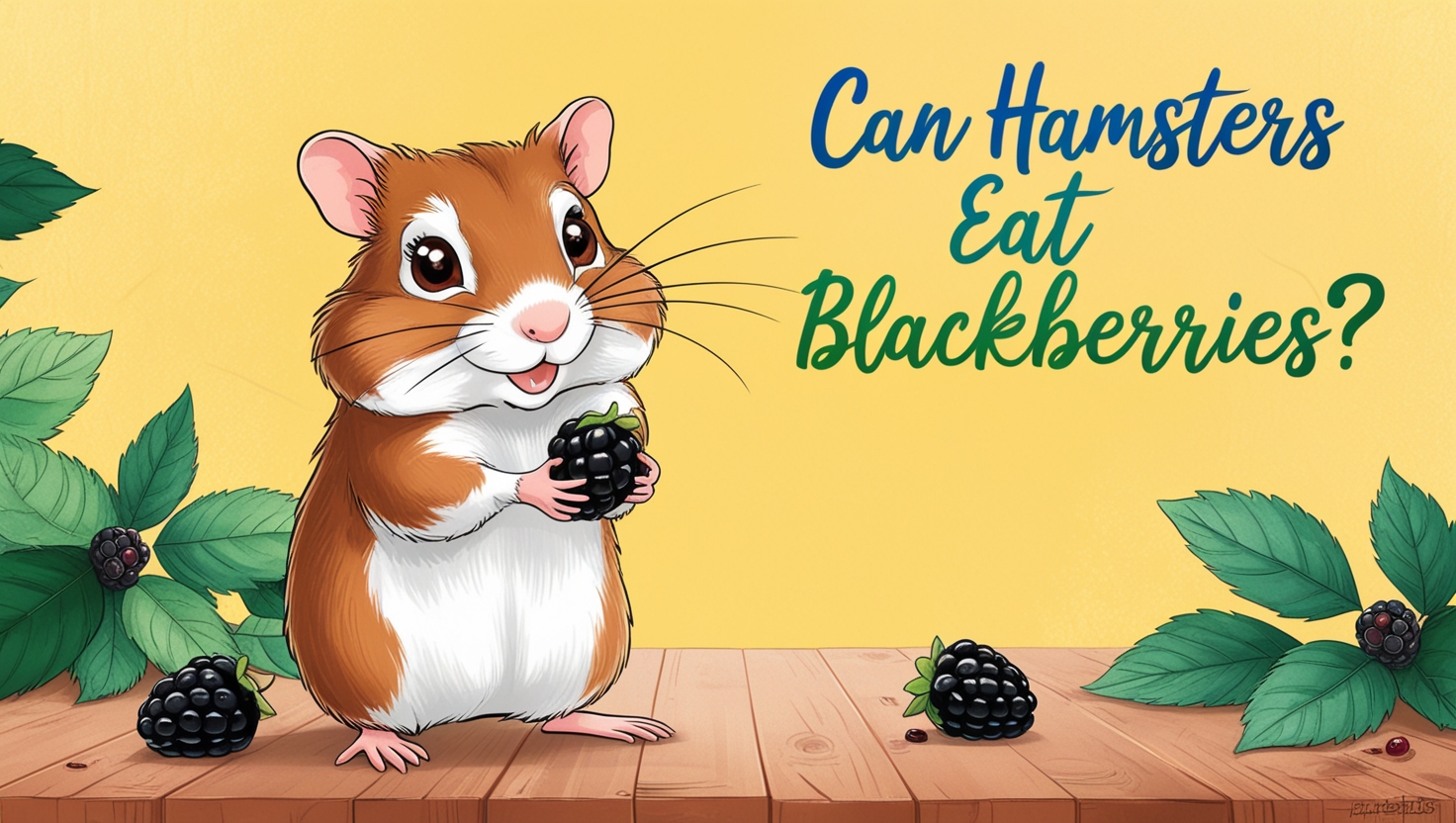
Feeding hamsters
Hamsters have that funny and adorable habit to store food in their cheek pockets! The base of their food are grains, which you can buy prepared especially for hamsters in pet stores or you could make it yourself. Grains should take almost one hundred percent of the menu.
They also love nuts and seeds, which are good for them and important for sharpening their teeth. Just be cautions about amounts. You can serve nuts to your hamster in very small portions. Two or three walnuts, hazelnuts or other a day would be sufficient.
Juicy blackberries for your hamster
When it comes to fruit, most of it is suitable for your pet, only in moderate amounts. All fruits contain sugar, which can be harmful for tiny hamsters’ body, if given in larger quantities. Some fruits are safer for your hamster than the others and the list includes blackberries as well.
Besides blackberries, recommended fruit for hamsters are strawberries, bananas, apple, melon, cranberries, mango, cantaloupes and cherries.
Blackberries should be given as an addition to your hamster’s basic food. Your pet would certainly enjoy its juicy flavor and sweetness. Blackberries are also good because they are not acidic like citrus fruits. Give a tablespoon of blackberries to your hamster several times a week and there would be no problem at all.
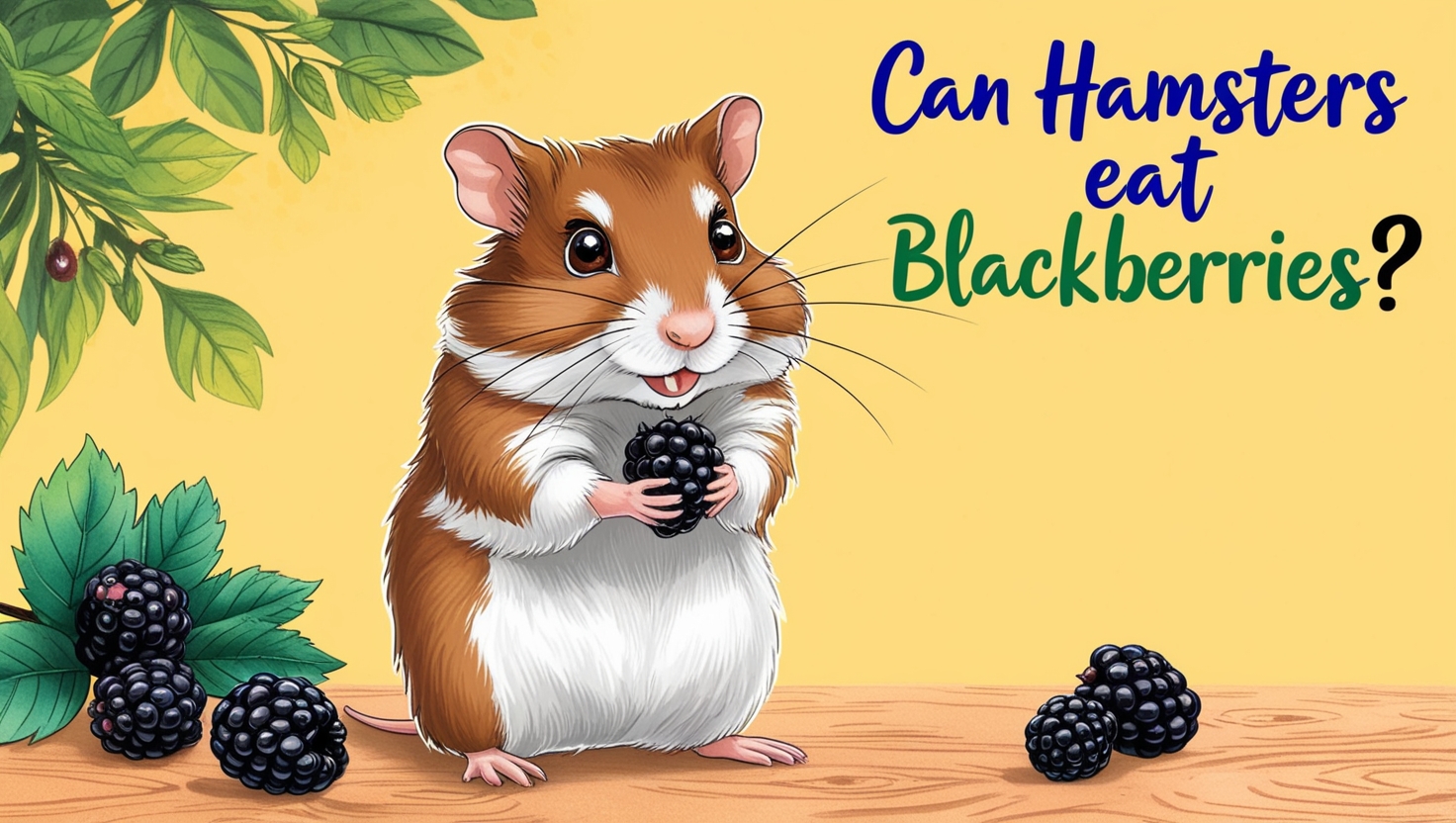
Conclusion
In conclusion, hamsters can eat blackberries in moderation as part of a balanced diet. These tiny fruits offer essential vitamins, antioxidants, and hydration for your furry friend. However, always remember the importance of moderation and proper preparation when introducing new foods to your hamster’s diet. By following these guidelines, you can ensure that your hamster stays healthy, happy, and full of energy.
If you found this guide helpful, don’t forget to hit the like button. For more informative articles and expert advice, check out our prompt library for a wealth of knowledge on various topics. And if you’re looking for custom prompts or SEO services, consider hiring us on Upwork for top-notch assistance. Your hamster’s well-being is our priority!
FAQs
Can hamsters eat blackberry leaves and stems?
Yes, hamsters can nibble on blackberry leaves and stems. They are safe and can provide additional enrichment to their diet.
Are there any other fruits hamsters can eat?
Indeed, hamsters can enjoy a variety of fruits, such as apples, pears, and strawberries. Just remember to offer them in moderation.
Can I feed my hamster frozen blackberries?
Frozen blackberries are safe for hamsters, but make sure to thaw them before serving. Cold foods can be harsh on their tiny digestive systems.
How often can I give blackberries to my hamster?
You can give blackberries to your hamster a few times a week, but not every day. A varied diet is crucial for their overall health.
Can hamsters eat blackberry jam or jelly?
No, it’s best to avoid giving your hamster sugary and processed foods like blackberry jam. Stick to fresh fruits for their well-being.
Are there any health risks associated with feeding blackberries to hamsters?
The main risks include overfeeding, which can lead to obesity and digestive problems, and not removing the seeds, which can pose a choking hazard.


 (1 votes, average: 4.00 out of 5)
(1 votes, average: 4.00 out of 5)